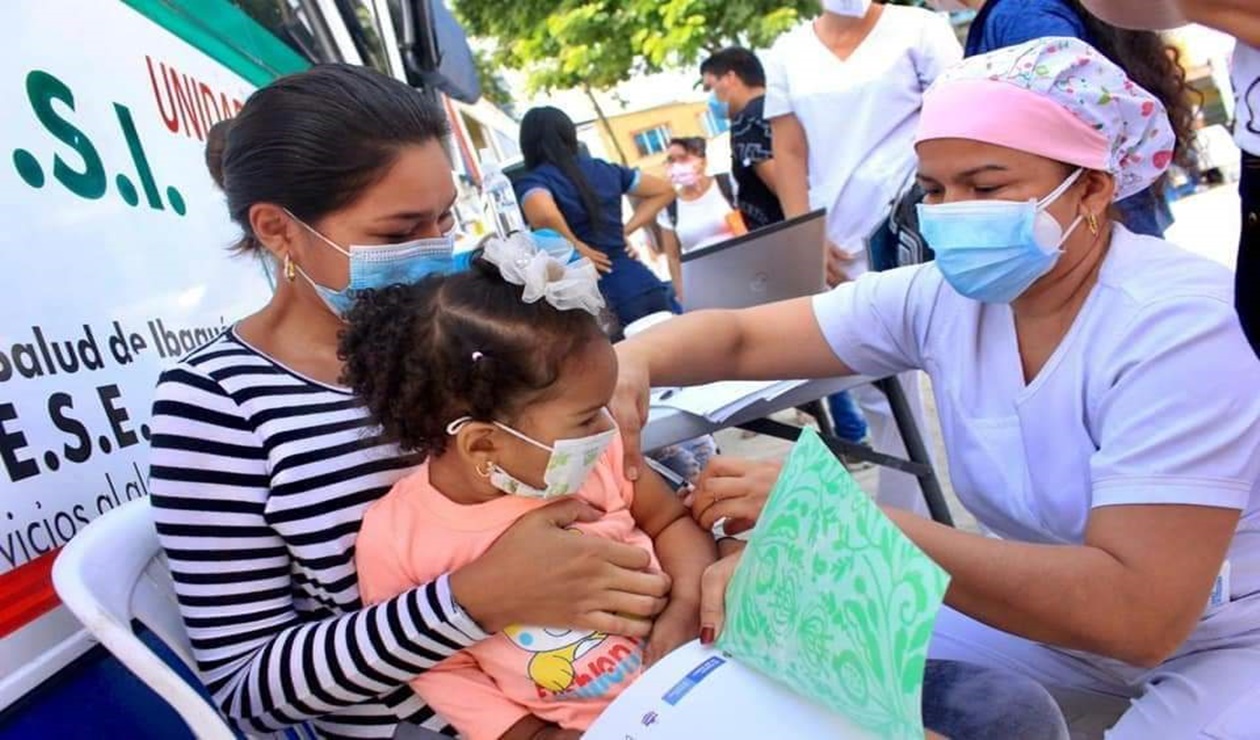A study produced by the Brazilian Institute for Social and Economic Analysis (Ibase) concluded that transparency in the flow of mining resources is quite limited. Although the survey was based on a case study – between 2019 and 2020, the researchers were in Conceição do Mato Dentro (MG) to collect data on transparency – the survey brings some conclusions about governance in the sector and availability data in Brazil.
The final report of the work, released two weeks ago, points out that the lack of online publication of revenue from royalties mining, as well as the lack of disclosure about the allocation of these resources, violate Federal Law 13,540/2017 and make it impossible for civil society to be monitored and also for State inspection in general.
Indications were raised that the municipality received a proportion of the Financial Compensation for the Exploitation of Mineral Resources (CFEM) lower than it should have. On the other hand, the city of Conceição do Mato Dentro is not being transparent about the way it uses these resources.
Considering the royalty In mining, the CFEM is paid by the mining companies to the Union, which, in turn, makes the division and transfers to the states and municipalities. This process is monitored by the National Mining Agency (ANM).
lack of data
“With the data available today, it is very difficult to check. In some cases, the data even exists, but it is not easily found. Not even the city hall is able to say if it is receiving the values correctly. It does not have the technical capacity to carry out the checking”, says anthropologist Athayde Motta, executive director of Ibase and one of the research participants.
Since 1981, Ibase is a non-profit organization focused on actions and research on the promotion of citizenship. The study was carried out in partnership with the British non-governmental organization Publish What You Pay, which works to propose measures of transparency and responsibility in order to improve the governance of extractive sectors.
To join the team, social scientist Tadzio Peters Coelho was also invited. Professor at the Federal University of Viçosa (UFV), he is the author of several researches on mining and socioeconomic development.
Case study
The choice of the target municipality for the case study was mainly due to two reasons. There was interest from Publish What You Pay that the performance of a British mining company be analyzed. This decision would also make it easier to obtain data, as the UK’s transparency regulations are broader than those in Brazil. In addition, Ibase considered logistical issues and the team’s displacement from Rio de Janeiro.
Based on the criteria, the research was defined in Conceição do Mato Dentro, where the Anglo American mining company operates the Minas-Rio complex. It is the ninth largest iron ore mine in the world, with around 1.28 billion tons of resources and an expected useful life of 48 years. Minas-Rio also involves a pipeline that runs 525 kilometers to the port in Barra de Açu, in the municipality of São João da Barra (RJ). According to information supplied by Anglo American, the project is the mining company’s largest investment in the world.
According to Brazilian legislation, by 2017, 65% of CFEM’s collection should be allocated to municipalities that produce mineral resources where each mine is located, with the remainder divided between the state, the Union and non-producing municipalities, but affected by the activity.
In 2018, the percentage was reduced to 60%. According to a survey by Ibase, between the years 2015 to 2017, Conceição do Mato Dentro would have received less than it should have: in 2017, for example, data show that the municipality generated BRL 69.3 million in CFEM and received BRL 41, 4 million, which represents 59.7%.
allocation of royalties
According to the researchers, the city of Conceição do Mato Dentro ignores the legal requirement to disclose the allocation of royalties. Pursuant to Federal Law 13540/2017, the Union, states and municipalities must annually make public information regarding the application of the CFEM installments. “There is no specification in the budget on how to use the resource of royalty of mining. It is included in the general budget of the municipality,” says Athayde.
Without this publication, it is not possible to know exactly how much is being allocated to improvements for the communities living in the vicinity of the project. They have been living with health-related problems, with access to drinking water, in addition to the fear of disruption driven by the tragedies that occurred in 2015, in Mariana (MG), and in 2019, in Brumadinho (MG). Violations of rights in the Minas-Rio complex reached give rise to a public civil action by the Federal Public Ministry (MPF).
“The more transparent to the population, the easier it is for them to demand the good use of the money. Transparency is needed so that civil society has some kind of influence on how this resource is used. If the information is not explicit in the budget, the communities they have no way of evaluating whether the benefits of the mine outweigh the impacts. Civil society needs to be able to monitor how the resources are used,” adds Athayde.
For the researchers, without transparency, the inhabitants of the surroundings of the mine end up living with impacts that could be minimized, while the investment priorities are generally concentrated in the center of the municipality. “The distribution of gains and losses seems to favor the urban area over rural communities and disproportionately affect low-income families and the black population, with especially negative impacts on local water resources and food cultivation,” says the study.
economic diversification
The lack of transparency also creates another problem: the impossibility of ascertaining whether the municipality is applying 20% of the revenues with the royalties in its economic diversification, which is a public responsibility established in Federal 13,540/2017. “The ore is finite. The mine lasts 30 or 40 years. And part of the money it generates should be used to create alternatives. If this is not done, when the ore is finished, only the hole will remain in the ground”, observes Athayde .
The researchers raised evidence that would point in the opposite direction. The collection from CFEM represented a peak of 40.8% of municipal revenue in 2017, which fell in 2018 as a result of the large decrease in production after an incident of pipeline leak. The reduction in cultivated land, due in part to the decrease in the availability and quality of water, would indicate a weakening of other economic sectors.
“The cultivation area used for crops for local consumption, such as bananas, coffee, pineapples, peanuts, rice, sugar cane, beans, cassava and corn, was already decreasing in 2012, when the construction of the Minas-Rio complex began and, since then, the reduction has reached around 70%. With the third stage of the mine’s expansion, between 2016 and 2017, the cultivated land has suffered a particularly rapid decline,” the study points out.
In a statement, Anglo American says it has already invested R$541 million to support the development of the territories where it operates. The mining company also claims that it is up to date with the payment of all its taxes and that it pays the CFEM monthly directly to ANM. “The regulatory agency is responsible, then, for the distribution of the parts destined for the states, Federal District, municipalities and organs of the administration of the Union”, says the text.
Also according to the mining company, its operations follow the best international guidelines. Anglo American strictly complies with the applicable legislation and has its activities licensed and monitored by the competent authorities,” the note adds. The ANM and the municipality of Conceição do Mato Dentro were also contacted by Agência Brasil, but did not provide any feedback.
Recommendations
One of the main recommendations of the study is Brazil’s adhesion to the Extractive Industries Transparency Initiative (EITI), which currently has 55 countries, 11 of which are in Latin America. It is a global standard for building trust and reputation and reducing corruption and mismanagement in the extractive sector. Through it, nations commit to ensuring that companies and governments disclose their respective payments and revenues, along with a broad set of governance information.
The study also recommends that extractive industry data, including details of taxes paid, be made accessible to citizens. It also argues that current payout percentage rates for royalties mining activities to municipalities are disclosed in real time.
Another discussion raised by the researchers concerns the sector’s capacity for regulation and administration. They assess that the Union, states and municipalities are not properly prepared.
The problems range from lack of personnel to little investment in training. “It is necessary to have specialists in dam safety, people who have some level of education in the tax debate, who understand the payment of fees”, says Tadzio Peters Coelho.
Coelho also notes that there is little oversight in loco in mining companies, so that many declared data are not properly checked. “With the pandemic, it got even worse, due to the restriction of movement”, he observed.
For Athayde, the case study of Conceição do Mato Dentro brings conclusions from a specific reality, which demands care around generalizations. Even so, he assesses that it is possible to make some notes on the situation of the sector as a whole. “It is a pioneering study. But we can say that the observed lack of transparency highlights problems in the country’s governance structure.”









